Picking the ideal food truck generator can be challenging. After all, not all generators are the same. However, with numerous brands, prices, sizes, run times, voltages, watts, fuel demands, noise levels, and weights to examine, one can feel confused. Generally, a 1000 -2000 watts food truck generator can charge small-scale food carts with minimal equipment, often needing power for a single appliance such as a hot dog steamer. On the other hand, large gourmet trucks with a variety of cooking appliances might need 7000 - 10,000 watts and a larger generator.
What Size Generator Do I Need For a Food Truck
The best generator for your food truck should be able to support your truck's electrical requirements. Not all generators are made equal. What works for a BBQ food truck may not be suitable for a dessert food truck. The key things to consider are your power requirements and how long you plan to run the generator.
Simply multiply each appliance's voltage and current requirements of each appliance and sum the totals. Generators usually have labels indicating the number of watts they can output. For example, the Jackery Solar Generator 1000 Plus can generate up to 2000 running watts and 4000W surge peak wattage. Of course, running Watts just means the number of watts an appliance needs to keep running. But the longer you'll need to run your generator, the more gas you'll need, which may increase the overall weight of the generator, making transportation cumbersome.

Solar Generators: Quiet Generator For Food Truck
Another thing to consider is noise levels. Solar generators for food trailers trounce their gas-powered counterparts when it comes to quiet operations. Solar generators allow you to collect and convert solar energy to electric power.
Some, like the Jackery Solar Generator, are also equipped with storage with portable power stations for storing power for later use. But in all cases, solar generators are quiet since they do not have moving parts. So, customers concerned about noise won't stay away from your food truck because there'll be no incessant rattles coming from the back of the truck.
Moreover, solar energy is free. The only expenses you'll bear are the initial setup costs. Otherwise, there are no additional costs for fuel and upkeep during its lifetime.
Can you power a food truck with solar generator?
Yes, you can power a food truck with a solar generator. Solar generators are more efficient than diesel-powered generators as they’re more cost-effective and don’t create loud noise or exhaust fumes. Plus, food trailer generators require minimal upkeep and maintenance!
With the right solar panels and battery capacity of your solar generator, you can power the necessary equipment you need to operate your food truck. For instance, the Jackery Solar Generators come in different sizes and capabilities that can be tailored to fit your specific needs.
Jackery Solar Generator 1000 Plus
The Jackery Solar Generator 1000 Plus is an expandable solar-powered food trailer generator that can charge 99% of food truck appliances, such as solar-powered grills, mini freezers, blenders, refrigerators, microwaves, etc. With the help of additional Jackery Battery Pack 1000 Plus, you can expand the battery capacity from 1.2kWh to 5kWh. Hence, it's a great option for small-scale food trucks, coffee and beverage trucks, ice cream trucks, and vegan trucks.

|
Product |
Capacity |
Running Time |
|
Jackery Solar Generator 1000 Plus |
1264Wh |
Refrigerator (400W) = 2.5H Freezer (300W) = 3.3H Blender (300W) = 3.3H Microwave (800W) = 1.2H Espresso Machine (1000W) = 1.0H Griddle (1200W) = 50 minutes Dishwasher (1200W) = 50 minutes Toaster (800W) = 1.2H Electric Kettle (1000W) = 1.0H Food Warmer (600W) = 1.6H |
Note: The working hours we have calculated in the table are just for reference purposes and may vary from actual runtime.
Jackery Solar Generator 2000 Plus
If you own large gourmet trucks, fast food and snack trucks, bakery and dessert trucks, pizza trucks, or barbecue trucks, you may go ahead with the large Jackery Solar Generator 2000 Plus. It's compact in size and can charge up to 99% of food truck appliances. The double wheels, a pull rod, and a foldable handle ensure easy movement in and out of the food truck. Whenever you think you need more power, the battery capacity of the best quiet generator for food trucks can be expanded from 2kWh to 24kWh with the additional Jackery Battery Pack 2000 Plus.

|
Product |
Capacity |
Running Time |
|
Jackery Solar Generator 2000 Plus |
2042.8Wh |
Refrigerator (400W) = 4.0H Freezer (300W) = 5.4H Blender (300W) = 5.4H Microwave (800W) = 2.0H Espresso Machine (1000W) = 1.6H Griddle (1200W) = 1.3H Dishwasher (1200W) = 1.3H Toaster (800W) = 2.0H Electric Kettle (1000W) = 1.6H Food Warmer (600W) = 2.7H |
Jackery Solar Generator 5000 Plus
Gourmet trucks and large food trucks often need a lot more power because they require heavy-duty kitchen appliances, such as grills and fryers. The Jackery Solar Generator 5000 Plus is one of the solar-powered generators with large capacity and high-rated power. It can power almost all food truck appliances for long hours, ensuring you can cook sophisticated dishes or on-the-go meals. Even though it features a large capacity, you can extend the battery capacity from 5kWh to 60kWh with the help of the Jackery Battery Pack 5000 Plus.
|
Product |
Capacity |
Running Time |
|
Jackery Solar Generator 5000 Plus |
5040Wh |
Refrigerator (400W) = 10.0H Freezer (300W) = 13.4H Blender (300W) = 13.4H Microwave (800W) = 5.0H Espresso Machine (1000W) = 4.0H Griddle (1200W) = 3.3H Dishwasher (1200W) = 3.3H Toaster (800W) = 5.0H Electric Kettle (1000W) = 4.0H Food Warmer (600W) = 6.7H |
Types of Food Trucks and Their Appliances Wattages
There are many food trucks, including concession trailers, ice cream trucks, food carts, and catering units. The electricity requirement of a food truck depends on the kinds of food served, the appliances utilized, and the truck's size.
Concession trucks
Concession trucks feature a full kitchen with appliances like refrigerators, grills, deep fryers, and refrigerators. These typically consume wattage in the 1500-5000W range, depending on the appliance. The expandable Jackery Solar Generator 1000 Plus can charge up to 99% concession truck cooking appliances, including electric grills, to prepare sophisticated dishes. If you want to charge heavy-duty appliances, you can consider choosing the Jackery Solar Generator 5000 Plus that can power almost all food truck appliances. Despite the large capacity, the solar generator is easy to move due to the pull rod and double wheels.
Kiosks
On the other hand, kiosks are for serving snacks and drinks. They often have smaller equipment with a 500-1500 wattage range. These include hot dog heaters, coffee makers, and refrigerators. Since most kiosks need smaller appliances, you may opt for the Jackery Solar Generator 1000 Plus with an output of 2000W.
Ice Cream Trucks
Ice cream trucks typically sell a limited selection of frozen food and drinks. They often have smaller equipment, such as refrigerators and freezers, with power input requirements in the 500 to 1000W range. Some of the best generators for food trucks that you may choose for ice cream trucks include Jackery Solar Generator 1000 Plus or Jackery Solar Generator 2000 Plus.
Food Carts
These smallest food trucks offer only pretzels, hot dogs, and drinks. They often include smaller equipment such as hot dog heaters, refrigerators, and coffee makers with 500-1000W power requirements. A small solar generator for food trucks like Jackery Solar Generator 1000 v2 or Jackery Solar Generator 1000 Plus can easily meet the power needs of food carts.
Catering Trucks
Catering trucks prepare hot meals and are frequently outfitted with burners, ovens, and warming trays, requiring a 1500-3000W power range. Since these trucks typically need heavy-duty appliances, you may go ahead with larger Jackery Solar Generator 2000 Plus or Jackery Solar Generator 3000 Pro that have the capability to charge 99% of cooking appliances.
|
Food Truck Type |
Wattage Needs |
Reason for Wattage Needs |
|
Gourmet Trucks |
7,000 - 10,000 Watts |
Require power for a variety of cooking appliances for sophisticated dishes, increasing overall power requirements. |
|
Fast Food and Snack Trucks |
5,000 - 7,000 Watts |
Need power for high-wattage fryers, grills, and refrigerators to prepare quick, on-the-go meals. |
|
Coffee and Beverage Trucks |
3,000 - 5,000 Watts |
Primarily need power for coffee machines, blenders, and refrigeration. |
|
Ice Cream Trucks |
2,000 - 4,000 Watts |
Power mainly for heavy-duty freezers and soft serve machines. |
|
Bakery and Dessert Trucks |
4,000 - 6,000 Watts |
Need ovens and refrigeration, with power needs hinging on the volume of on-site baking. |
|
Pizza Trucks |
6,000 - 8,000 Watts |
Ovens, especially wood-fired electric models, are high-wattage and essential for pizza preparation. |
|
Barbecue Trucks |
8,000 - 10,000 Watts |
High power requirements due to smokers, grills, and refrigeration units for authentic barbecue offerings. |
|
Vegetarian/Vegan Trucks |
3,000 - 5,000 Watts |
Use a range of blenders to prepare smoothies and refrigerators, but generally less power-intensive than heavy-duty cooking equipment. |
|
Food Cart (Small Scale) |
1,000 - 2,000 Watts |
Operates with minimal cooking equipment and typically needs a single appliance like a hot dog steamer. |
The electricity requirement of a food truck depends on the kinds of food served, the appliances utilized, and the truck's size. Jackery Solar Generator is a stellar setup that can power even the most loaded food truck. It combines several solar panels and a portable power station for storing power for later use. The power station can recharge via solar, gas, or car charger. It also has a pass-through charging feature to recharge it while simultaneously charging your appliances.
Benefits of Solar Food Truck Generator
Going solar for your food truck will have several advantages. You can save on electricity bills and reduce your environmental footprint while still providing customers with quality meals.
A solar food truck generator is perfect for running all the necessary components of a kitchen, such as fridges, air conditioners, microwave ovens, and other appliances. Furthermore, it is an excellent solution during times of natural disaster when the grid is not available.
Solar energy can also save you from inconvenience due to its portability and scalability. You can easily move your solar generator around as needed, and scale it up depending on the power requirements of your food truck business.
Tips for Choosing the Right Generator for Food Truck
When looking for a generator to power your food truck, make sure to consider the following:
- Size: Base the size of the food truck generator on the truck's total power requirements. Consider how many appliances you need to run and how much power each consumes.
- Noise Output: Generators with unnoticeable noise output levels are the best, especially if you plan to operate your food truck in residential areas.
- Power Output: the generator should generate enough power to run all your food truck's equipment and appliances.
- Fuel Efficiency: Look for a fuel-efficient generator that can run for extended periods on less fuel.
- Cost: Consider the generator's cost and ensure it fits your budget.
Food Truck Generator FAQs
How many amps does a food truck need?
The amps of a food truck should be at least 50 amps. For basic equipment like running small equipment such as fridges or blenders, you'll need a generator with a minimum of 25 amps.
What generator is used for a food truck?
Food trucks generally require 1000 - 10,000 watts of power to operate its appliances. Small food trucks typically need around 1000 - 4000 watts of power, whereas large trucks need 5000 - 10,000 watts of generator to charge most large appliances.
How to power a food truck without a generator?
Aside from the built-in generator, there are many ways to power a food truck, such as portable generators and Liquefied Petroleum Gas cylinders (LFG).
How do food trucks get power?
Food trucks with inside cooking appliances and exhaust fans need consistent power supply so they can either be plugged into an outlet or run using a portable generator. Jackery Solar Generators are reliable solar-powered solutions that can charge most food truck appliances, such as electric grills, mini fridges, ice makers, etc.
Conclusion
It is important to select the right size generator for your food truck that meets your power needs, is fuel efficient, eco-friendly, and fits into your budget. All it requires is just a little homework.
Look at the size of your food truck, the electricity requirement, and how long you plan to run the generator. These factors will affect the type and size of the generator for you. In all cases, speak with an expert whenever in doubt.
With Jackery ’s solar generators, you can be sure to have reliable power that is both cost-effective and environmentally friendly - no matter what size your food truck. Sign up for our newsletter today!

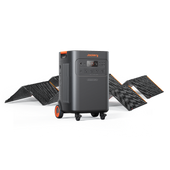











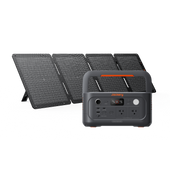



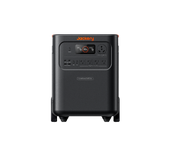
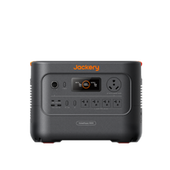





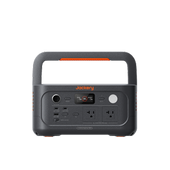





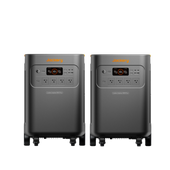
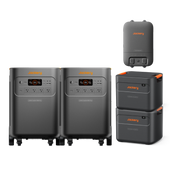





![[Add - on] Jackery Manual Transfer Switch for Explorer 5000 Plus - Jackery](http://www.jackery.com/cdn/shop/files/add-on-jackery-manual-transfer-switch-for-explorer-5000-plus-9017324.png?v=1754016782&width=170)

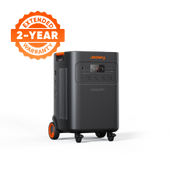
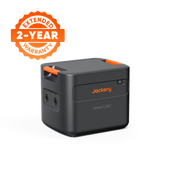
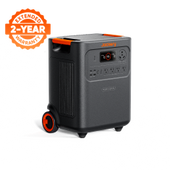
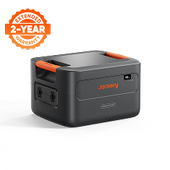
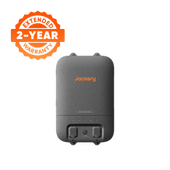



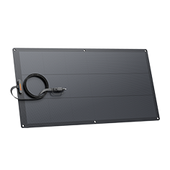
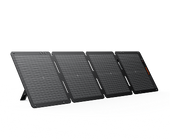




















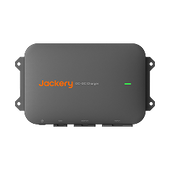




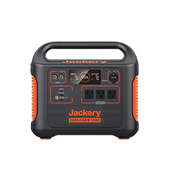






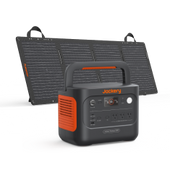
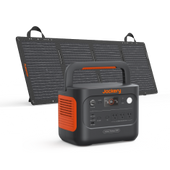






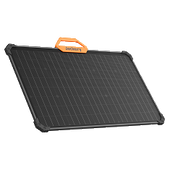


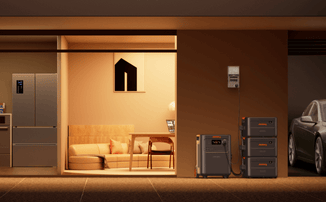














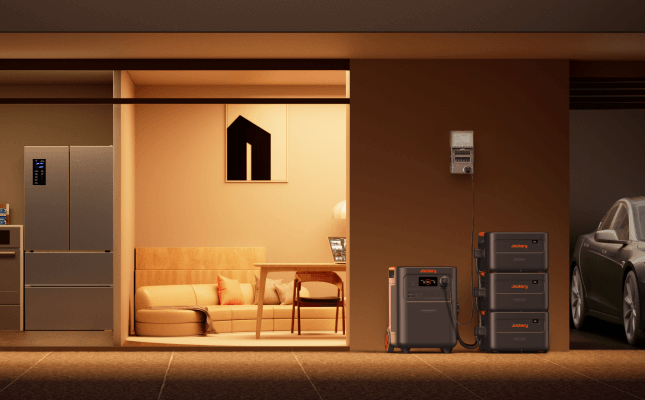


























Leave a comment